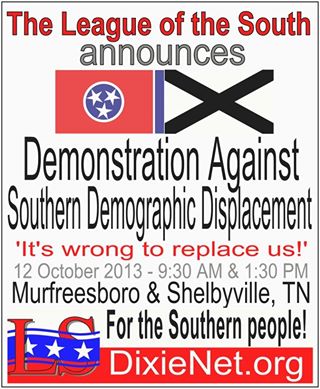I have been making the case that the Institute on the Constitution defends the Confederate view of the Constitution more so than the American view that has evolved since the founding. This post provides another support for my case. Who one reveres and cites as an authority and who one rejects and denigrates can give some insight. In the case of the IOTC, it is very clear from their website that they believe Abraham Lincoln was a scoundrel and Confederate leaders and thinkers were heroes. On Lincoln, see these articles (here and here).
On the other hand, IOTC exalts R.L. Dabney. Dabney was a Presbyterian minister who fought for the South in the Civil War and was considered to be one of the leading theologians of the day. Dabney promoted the concept of a Christian nation and defended slavery before and after the Civil War. Dabney is cited frequently on the IOTC website. In fact, they cite him favorably in their mission statement.
Dabney is used as a source for IOTC teaching. His treatise on civil government is cited as a reading in their lesson on civil law and the civil magistrate. In this section, Dabney makes a case against the view of government as a social contract and instead proposes biblical law as a basis (as does IOTC). Later in this excerpt, Dabney defends slavery and diminished civil rights for blacks and women:
Men have by nature, a general equality in this; not a specific one. Hence, the general equality of nature will by no means produce a literal and universal equality of civil condition; for the simple reason that the different classes of citizens have very different specific rights; and this grows out of their differences of sex, virtue, intelligence, civilization, etc., and the demands of the common welfare. Thus, if the low grade of intelligence, virtue and civilization of the African in America, disqualified him for being his own guardian, and if his own true welfare (taking the “general run” of cases) and that of the community, would be plainly marred by this freedom; then the law decided correctly, that the African here has no natural right to his self–control, as to his own labour and locomotion. Hence, his natural liberty is only that which remains after that privilege is retrenched. Still he has natural rights, (to marriage, to a livelihood from his own labour, to the Sabbath, and to the service of God, and immortality, etc., &c). Freedom to enjoy all these constitutes his natural liberty, and if the laws violate any of it causelessly, they are unjust.
According to Dabney, a African in America had certain rights but not rights to be “his own guardian.” Elsewhere in his writings, Dabney referred to the righteousness of slavery and to abolitionists as infidels.
While I am not giving an opinion about what IOTC believes about Southern slavery, I am noting that their heroes promote a view of civil government that did not prevail beyond the 1860s. As articulated by the Declaration, Lincoln, and the Constitution as amended, America is dedicated to the proposition that all are created equal before the law; the Confederate view was not dedicated to that proposition.
